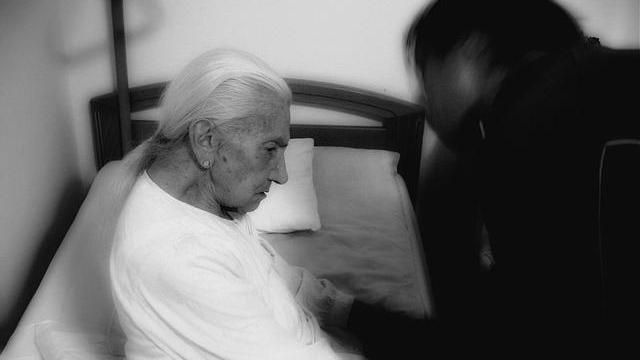Lilly shares disappointing A4 study results for solanezumab

Eli Lilly and Company has announced the results from its latest study, which show that solanezumab does not slow the progression of cognitive decline due to Alzheimer’s disease (AD) pathology when initiated in individuals with amyloid plaque yet no clinical symptoms of the disease (known as the preclinical stage of AD).
In the US, more than 6.5 million people currently suffer from dementia due to Alzheimer’s disease and scientists expect this number to nearly triple by 2050. Indeed, it is estimated that more than 20 million Americans and approximately 315 million people worldwide have preclinical Alzheimer’s disease.
Amyloid is normally present in the brain as a single protein. In Alzheimer’s disease, however, it aggregates into clumps that can disrupt communication between brain cells and cause their death. However, solanezumab only targets soluble amyloid beta-protein and, as expected, the treatment was found not to clear deposited amyloid plaques or to halt accumulation of amyloid in participants treated with the drug, in the Anti-Amyloid Treatment in Asymptomatic Alzheimer’s disease (A4) study.
The A4 study was launched just over a decade ago - a first-of-its kind secondary prevention trial that enrolled over 1,100 individuals across 67 sites throughout the United States, Japan, Canada, and Australia, who were aged between 65 and 85 years old and who had PET-imaging evidence of amyloid plaque accumulation in the brain and no clinical impairment. The participants were randomised to either solanezumab or placebo and then treated for approximately 4.5 years.
The study has now found that solanezumab does not slow cognitive decline on the primary outcome measure, the equally weighted Preclinical Alzheimer Cognitive Composite (PACC), which was developed to measure the aspects of cognitive decline relevant in preclinical AD, testing episodic memory, timed executive function, and global cognition.
Meanwhile, secondary clinical outcome results were consistent with the primary outcome, numerically favouring placebo compared with solanezumab.
John Sims, head of medical, global brand development – solanezumab, at Lilly, said: “Results of the A4 study clearly showed that the primary and secondary endpoints were not met. Therefore, the A4 study concludes our clinical development of solanezumab and indicates that targeting soluble amyloid beta through this mechanism is not effective in this population.”
Sims continued: “While this study was negative, the unique data generated [has] increased our understanding of preclinical Alzheimer’s disease and will advance the next generation of AD prevention studies.”
The raw data and analyses will now be made widely available to researchers through Lilly’s public-private partnership with the National Institute of Aging, part of the National Institutes of Health (NIH)-funded Alzheimer’s Clinical Trial Consortium.
Dr Reisa Sperling, a neurologist at the Brigham and Women’s Hospital, Harvard Medical School, and the A4 study’s project director, said that the data suggests “that we may need to be more aggressive with amyloid removal even at this very early stage of the disease […] It is imperative that we learn everything we can to inform ongoing and future trials in our quest to prevent memory loss due to Alzheimer’s disease.”
Despite the disappointing results, Lilly states that it remains committed to fighting Alzheimer’s disease, with plaque-clearing mechanisms such as donanemab and remternetug both in ongoing phase 3 trials. These investigational antibodies are different from solanezumab in that they specifically target deposited amyloid plaques and have already been shown to lead to plaque clearance in treated patients.
Nonetheless, in January this year it was reported that Lilly had been unable to secure an accelerated FDA approval for donanemab based on mid-stage clinical results, though it remains on track to file a traditional submission around the middle of 2023.
Image by Gerd Altmann, sourced from Pixabay.













